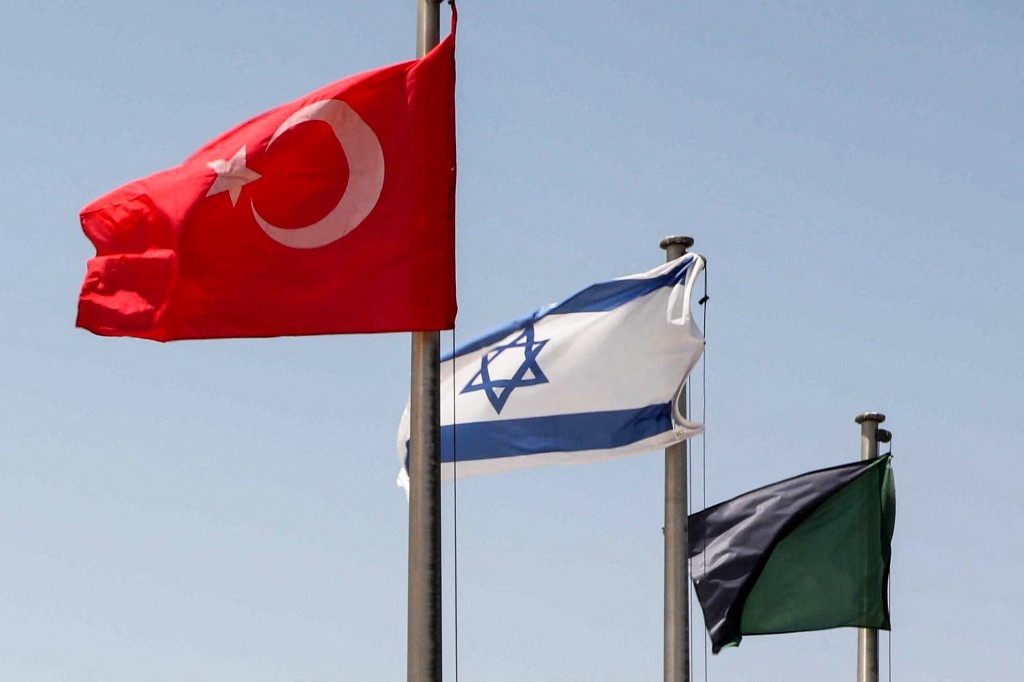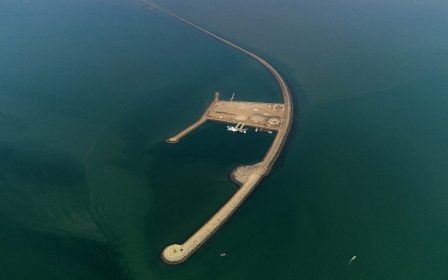Israel-Saudi normalisation: Turkey backs the move, Erdogan says

Turkey supports the recent attempts to normalise ties between Israel and Saudi Arabia, Recep Tayyip Erdogan said during a closed-door briefing with analysts and journalists in New York on Monday, sources told Middle East Eye.
"Turkey views the normalisation attempts between the two countries positively," the Turkish president said, responding to a question, according to two sources who were present at the meeting.
For months, Washington has been leading efforts to strike a deal between Saudi Arabia and Israel that would establish formal ties.
Saudi Arabia has held out the offer to normalise ties with Israel since 2002 under the Arab Peace Plan, which calls for an independent Palestinian state in the West Bank and Gaza Strip, with East Jerusalem as its capital.
A Turkish source familiar with Ankara’s thinking told MEE that Turkey is in favour of decreasing tensions in the region.
New MEE newsletter: Jerusalem Dispatch
Sign up to get the latest insights and analysis on Israel-Palestine, alongside Turkey Unpacked and other MEE newsletters
"Turkey’s current support to normalisation is just a continuation and reflection of this general policy," the source said. "The normalisation could become a political leverage to push Israel to act smarter in the region."
In exchange for normalising ties, Saudi Arabia wants security guarantees from the United States, help in developing a civilian nuclear programme, and fewer restrictions on US arms sales.
While the Palestinian issue is not thought to be central to the agreement, a component of the deal would include possible benefits to the Palestinians.
The Turkish source said the deal may become a positive influence over the Israeli leadership to pressure them on the Palestinian question.
“This could put Turkey at ease in its relationship with Israel, since it is likely to create less tensions with the Palestinians,” the source said. “Because Ankara feels compelled to respond to Israel whenever it acts against the Palestinians.”
A Saudi media report over the weekend claimed that Riyadh was "pausing talks" with Israel because of distaste over the far-right government of Israeli Prime Minister Benjamin Netanyahu.
The US State Department offered a quick and firm denial of the report on Sunday, saying on X, formerly Twitter: "Talks are ongoing, and we look forward to further conversations with both parties."
This article is available in French on Middle East Eye French edition.
Middle East Eye delivers independent and unrivalled coverage and analysis of the Middle East, North Africa and beyond. To learn more about republishing this content and the associated fees, please fill out this form. More about MEE can be found here.




